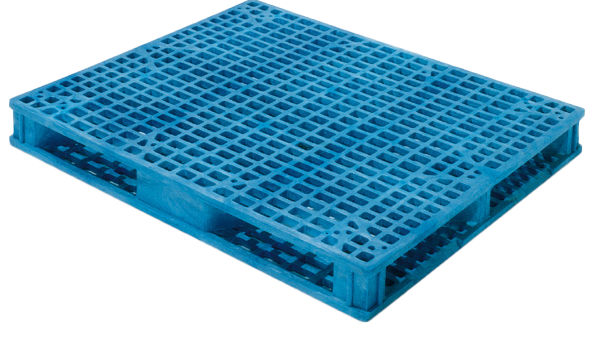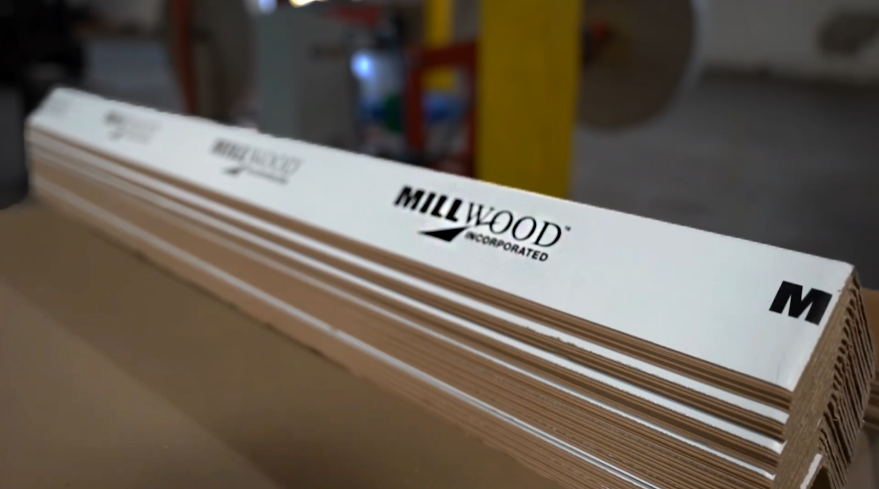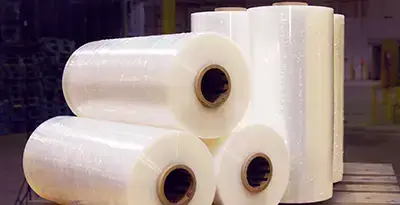Plastic Pallets

Know What You're Looking For?
Need More Help With Your Pallet?
Plastic Pallets for Durable and Sustainable Supply Chains
Millwood, Inc. is a trusted plastic pallet supplier offering durable, hygienic and cost-effective solutions for industries with demanding logistics needs. Our plastic pallets are reusable, recyclable and engineered to reduce long-term costs while supporting sustainability goals.
Why Choose Plastic Pallets?
Plastic pallets excel in closed-loop and high-turn environments where longevity and hygiene are essential. Unlike traditional wood designs, a plastic pallet is resistant to weather, moisture and insects, and can be easily washed for re-use. Available in standard footprints like 48×40 and 48×45, as well as custom sizes, plastic pallets provide consistent performance across storage, handling, and automated systems.
Industries That Benefit from Plastic Pallets
From food and beverage to automotive, chemicals and pharmaceuticals, companies rely on plastic pallets to meet strict safety and supply chain standards. Their uniform design supports automated warehousing and racking, while their non-porous surface reduces contamination risks. Exporters also choose plastic pallets for ISPM-15 exemption, ensuring hassle-free international shipping without additional treatment requirements.
Custom Requirements? No Problem.
We know that no two applications are the same. That’s why our pallet design team engineers custom pallets at the ISTA-certified Millwood Lab: to ensure each spec is tailored to your exact load and handling requirements. Our approach avoids:
- Under-engineering that can result in pallet failure and product damage
- Over-engineering that drives up unnecessary costs and excess freight weight
- Instead, we deliver a just-right solution—balanced for strength, cost, and performance
Why Choose Millwood as Your Pallet Supplier?
- Customer Centric Approach: We collaborate closely with customers, providing personal service and responsive support to meet your unique needs.
- Industry Expertise Since 1985: With over four decades of experience, Millwood understands the complexities of pallet design and supply chain logistics.
- Innovative Design & Testing: Our in house ISTA certified lab and Pallet Design System (PDS) enable tailored, optimized pallet solutions
. - Manufacturing Experts: From sawmilling, resawing, assembly, heat treating and mold prevention, we have the experience and knowledge to serve you.
- Sustainability Commitment: We are committed to efficiency without compromising our environment.
Proven Solutions that Complement our Stringer Pallets
Millwood Lab
Our ISTA-certified test lab gives customers confidence that their wood pallets and packaging solutions will perform in real-world conditions. By simulating shipping and handling environments, we test, verify and optimize designs to reduce product damage, minimize waste and improve supply chain efficiency.
Pallet Recycling
Millwood offers complete pallet recycling programs to retrieve, inspect, recover and remanufacture or repair pallets. Our recycled pallet and recovery programs include green recycling processes that complement corporate sustainability initiatives.
More than just a pallet supplier
We’ve hand-picked these products to create a comprehensive solution that complements your pallet needs.

Produced in our state of the art facility on Lordstown, Ohio our corner protectors are designed to protect your load from strapping abrasion and other damage.

Hand and machine stretch wrap options that contain loads, prevent shifting and protect against dust and moisture with cost-efficient application.

Turntable, overhead and robotic stretch wrapping machines engineered to reduce film use and provide consistent, reliable load stability.
Frequently Asked Questions
What are the main advantages of plastic pallets?
Plastic pallets provide durability, hygiene and consistency that wood cannot match. They resist moisture, can be sanitized and have a long service life, making them ideal for industries with strict safety and supply chain requirements.
Compared to traditional wood designs, a plastic pallet is non-porous, washable and immune to insects, mold or rot. This makes it the preferred choice in food, pharmaceutical and export shipping applications. Plastic pallets also feature uniform sizing that works well in automated systems and high-density racking. While the upfront cost is typically higher than wood, the extended lifespan, reduced replacement needs and cost-per-trip efficiency often make them the most economical long-term solution.
Which industries benefit most from plastic pallets?
Plastic pallets are most valuable in industries where hygiene, consistency and reusability matter most. Food and beverage, pharmaceutical, chemical and automotive companies rely on them to meet strict quality and compliance standards.
For food and pharmaceutical manufacturers, washable plastic pallets help maintain sanitary supply chains and reduce contamination risks. Automotive and industrial suppliers value their strength and consistency for heavy parts handling. Exporters prefer plastic pallets because they are ISPM-15 exempt, eliminating the need for costly fumigation or heat treatment. Across these sectors, plastic pallets deliver reliable, repeatable performance and extended lifespans, making them the preferred choice for operations where durability and compliance are non-negotiable.
Are plastic pallets cost-effective compared to wood pallets?
Yes, plastic pallets often provide better cost-per-use over time. While initial costs are higher, their durability and reusability reduce replacement frequency, making them a cost-effective choice in closed-loop or high-turn supply chains.
A wood pallet may last only a few trips, while a plastic pallet can endure dozens or even hundreds of cycles, depending on application. This durability reduces waste and lowers per-trip costs. Plastic pallets also minimize product damage in automated systems thanks to uniform dimensions. Many companies find long-term savings when factoring in reduced repair costs, export compliance (no ISPM-15 treatment), and improved workplace safety from lighter, splinter-free handling. For the right applications, plastic pallets outperform wood in overall lifecycle value.
Can plastic pallets be customized?
Yes, a plastic pallet supplier can provide both standard and custom options. Many businesses require specific footprints, features or load capacities, and plastic pallets can be designed to meet those unique requirements.
Standard 48×40 and 48×45 pallets are widely used, but industries with specialized needs often request custom sizes, reinforced structures or features like nestable and rackable designs. Food and pharmaceutical supply chains may require hygienic, easy-to-clean models, while export shippers may prefer lightweight designs that reduce freight costs. By working with a trusted plastic pallet supplier, companies can engineer pallets that align with their product protection, automation, and global shipping requirements, ensuring both operational efficiency and regulatory compliance.
Are plastic pallets environmentally friendly?
Yes, plastic pallets support sustainability by reducing waste and extending pallet lifecycles. They are durable, reusable and recyclable, which lowers environmental impact compared to single-use alternatives.
While wood pallets are renewable, many break or require frequent repair. In contrast, plastic pallets last significantly longer, often surviving hundreds of trips in closed-loop systems. At the end of their service life, they can be ground down and recycled into new pallets, reducing landfill waste. Many businesses also appreciate the reduced product loss that comes from using consistent, durable pallets. For organizations with sustainability targets, plastic pallets offer a greener option by combining long service life, reduced raw material consumption and full recyclability.

